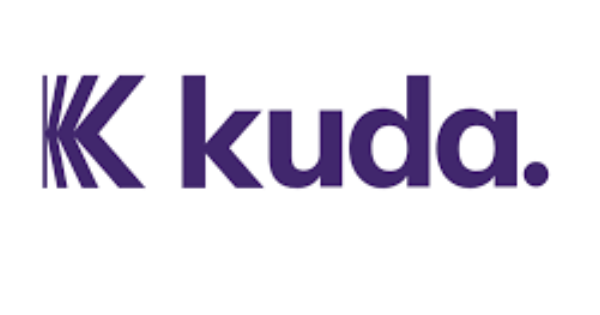E-Financial
Kuda celebrates five years of workplace inclusivity

As Kuda turns five, the fintech company says it is intentional about inclusion, diversity and equity within its workforce and is actively trying to hire more female engineers and product managers into leadership roles.

Kuda’s software development team now has 29-percent female representation with its quality assurance engineering team having 65-percent female representation. Kuda has also increased the number of women on its product team by 3 percent within the past year through a recruitment model designed to prioritise inclusion.
As reported in 2020 by McKinsey & Company, companies in the top quartile for gender diversity on executive teams were 25 percent more likely to have above-average profitability compared to companies in the fourth quartile. A report by the International Labour Organization (ILO) found that 74 percent of companies that track gender diversity in management report a profit increase of 5 percent to 20 percent.
Kuda has consistently championed inclusivity, recognising the crucial role it plays in fostering innovation and driving business success. In 2023, the fintech company set up a Diversity, Equity, and Inclusion (DEI) committee that develops and implements policies, raises awareness, and organises training to promote a diverse, equitable, and inclusive workplace.
As part of its efforts to diversify its engineering and product teams, Kuda fine-tuned its school-to-workplace internship program to reach young engineers and product managers, equipping them with essential skills to advance their careers.
Speaking on the importance Kuda places on inclusivity, Siseko Dastile, who heads Kuda’s DEI committee said, “We are committed to fostering a healthy work environment where everyone, regardless of gender, can achieve their career and personal aspirations.”
Investing in women’s skill development is another part of Kuda’s inclusion strategy. In 2022, the fintech company sponsored twenty young women to attend the Africa Girls In Tech bootcamp in partnership with Africa Agility. This program helped the attendees learn tech and product skills, equipping them for competitive internships at tech startups across Africa.
For the 2024 International Women’s Day, Kuda organised a webinar featuring women leaders who inspired young women at Kuda to pursue their professional aspirations.
Kuda believes that diversity is key to driving innovation and excellence in the workplace and is committed to fostering an environment where all employees have equal opportunities to thrive.
E-Financial
EFCC Recovers Funds Lost to CBEX Fraud

Ola Olukoyede, chairman, Economic and Financial Crimes Commission (EFCC), has announced that the body has recovered lost funds from the CBEX fraud scheme.

Olukoyede did not announce the amount recovered, but he assured Nigerians that the EFCC is taking action against the promoters of the scheme.
The EFCC Chairman emphasised that the suspects found are facing prosecution.
“We have found a lot of people culpable. Those who promoted that scheme are within our jurisdiction and have been arrested. So, at this moment, they are being prosecuted. And we can also say that money has been recovered, even though the process is still ongoing for us to finally forfeit it,” he said.
Olukoyede also urged Nigerians to exercise caution when investing their resources into online platforms.
“Ponzi schemes remain one of the most pervasive threats facing unsuspecting investors. The CBEX case is a clear example. We all remember the outcry that followed the collapse of the scheme, but these unfortunate situations are preventable. Nigerians must begin to conduct due diligence before committing their resources to such platforms,” Olukoyede said.
He also stressed that the body remains committed to fishing out the culprits and recovering the lost funds.
“It was only when the bubble burst that people wanted EFCC to perform magic and recover their money. In the case we investigated in Lagos, which we dubbed Operation Flush, we arrested a large number of foreigners involved in various cybercrimes, including CBEX. I want Nigerians to know that as of today, we have secured close to 150 convictions. Some of them are already serving their jail terms. And when they are through with that, we are going to send them back to where they came from. So we are monitoring them,” he added.
He urged the public to stay vigilant, assuring them that the body will see the case to the end.
“We are no longer the EFCC that drops cases halfway. Whatever we start, we will finish. Nigerians should trust us and believe in our capacity to do justice. Some of these cases are complex and may require cross-border investigations, but we are up to the task,” he said.
E-Financial
Financial Fraud in Nigeria Surges by 45 Percent, 70 Percent of Losses Linked to Digital Platforms – CBN

Central Bank of Nigeria (CBN) has raised the alarm over a significant rise in financial fraud cases in the country, revealing that fraud surged by 45% within one year, with 70 Percent of the resulting losses traced to digital channels, particularly unregulated virtual asset platforms.

Olayemi Cardoso, governor, CBN,
This was disclosed by Olayemi Cardoso, governor, CBN, in a speech delivered on his behalf by Muhammad Sani Abdullahi, deputy governor for Economic Policy, at a public lecture organized by the Economic and Financial Crimes Commission (EFCC) on Thursday in Abuja.
He added that findings from the CBN’s Financial Stability Report 2024 reveal a sharp increase in fraud.
“The CBN Financial Stability Report 2024 reveals a 45% surge in financial fraud cases, with 70% of losses linked to digital channels, including unregulated virtual asset platforms. Furthermore, over 30 Ponzi-style investment schemes exploiting digital currency narratives have been flagged by the SEC and other agencies.
“These developments pose major risks, including loss of consumer confidence, weakening of financial integrity and reputational challenges for Nigeria in the global financial system.
“In Nigeria, over $56 billion in crypto-related transactions were recorded between July 2022 and June 2023, making us Africa’s digital transaction leader. But this growth is not without consequences,” Cardoso stated.
Cardoso noted that while digital innovation has enabled broader financial inclusion, it has also introduced complex regulatory and security challenges.
“The present era of rapid technological transformation has made the adoption of digital financial services in Nigeria, including cryptocurrencies and tokenized investments, increase exponentially.
“The surge in digital innovation has brought benefits, such as greater financial inclusion and also given rise to complex challenges, such as fraud and money laundering,” he stated.
Emomotiti Agama, director general, Securities and Exchange Commission (SEC), emphasized the growing risks posed by virtual asset fraud to investor confidence and market integrity.
“Corruption remains a significant impediment to Africa’s economic growth, social development, and investor confidence.
“Today, as digital innovation transforms financial systems, we face new challenges, particularly the rise of virtual asset fraud and sophisticated investment scams, exploiting unsuspecting investors.
“These threats undermine market integrity, erode trust, and divert resources meant for sustainable development,” he said
Agama reiterated the SEC’s dedication to enhancing investor protection through increased education and awareness on how to identify and avoid fraudulent schemes.
He also emphasized the Commission’s efforts to update regulatory frameworks in response to emerging risks in virtual assets and digital investments, while promoting international cooperation to tackle corruption and illicit financial flows.
Malam Lanre Issa-Onilu, director general, National Orientation Agency (NOA), commended the EFCC for its efforts in combating financial crimes. He warned that the human cost of fraud extends far beyond the financial system.
“Experience has shown that deception is foundational to fraud, and if its impact goes far deeper, it undermines citizens’ confidence in their country. Every Naira lost to fraud causes far-reaching effects.
“It is about a child pulled out of school, a livelihood ruined, and an enterprise destroyed. These crimes are not abstract. They affect people, and our country pays dearly for it.”
He said the NOA had launched a nationwide campaign against the “get rich quick” mentality among Nigerians.
“At the National Orientation Agency, we believe that value orientation is our most powerful tool. That is why we launched a nationwide campaign several months ago against the spread of get-rich-quick syndrome. The initiative is helping all Nigerians, especially young people, to understand that lasting success comes from honesty and hard work, and it takes time.”
Hussaini Ishaq Magaji, registrar general, Corporate Affairs Commission (CAC), stressed the need for regulators, institutions, and stakeholders to remain vigilant and proactive in addressing emerging threats such as fraud, money laundering, and financial manipulation.
Magaji noted the CAC’s ongoing collaboration with the Securities and Exchange Commission (SEC) and other sector-specific regulators to strengthen corporate governance and enforce compliance, ensuring transparency and accountability within Nigeria’s financial ecosystem.
E-Financial
SEC DG Decries Digital Assets Fraud as Inimical to Market Integrity

Emomotimi Agama, Director General, Securities and Exchange Commission (SEC) has expressed concern over the growing threat of digital assets fraud, warning that it poses a significant challenge to market integrity and undermines investor confidence.

Speaking in Abuja at an event to mark African Union Anti-Corruption Day, themed “Understanding Virtual Assets and Investment Fraud”, Agama noted that corruption continues to be a major obstacle to Africa’s economic growth, social development, and attractiveness to investors.
He stated: “Today, as digital innovation transforms financial systems, we face new challenges, particularly the rise of virtual asset fraud and sophisticated investment scams exploiting unsuspecting investors. These threats undermine market integrity, erode trust, and divert resources meant for sustainable development”.
He explained that the SEC, as a frontline regulator, remains committed to “strengthening investor education on recognising and avoiding fraudulent schemes.; Enhancing regulatory frameworks to keep pace with evolving risks in virtual assets and digital investments; and Fostering cross-border collaboration to combat corruption and illicit financial flows”.
He stated that the Investment and Securities Act (ISA) 2025 introduced key provisions to regulate virtual assets (cryptocurrencies, digital tokens, and other blockchain-based assets) in Nigeria, with Commission as the primary regulator for virtual assets classified as securities or investment products.
Agama stated that all Virtual Asset Service Providers (VASPs) (exchanges, custodians, brokers) must obtain SEC approval and meet capital, governance, and cybersecurity standards.
On risk disclosures, the SEC DG noted that all platforms must warn investors about volatility, fraud, and regulatory risks, warning that there are stiff penalties for market manipulation, insider trading, and Ponzi schemes.
“The ISA 2025 provides a comprehensive legal framework for virtual asset regulation, balancing innovation, investor protection, and financial stability. The SEC will continue to issue guidelines to ensure compliance while fostering a secure digital asset ecosystem.
“We urge all stakeholders—governments, private sector players, civil society, and citizens—to join forces in promoting transparency, accountability, and ethical practices. Together, we can build resilient markets that drive Africa’s prosperity”, he added.
In his remarks, Ola Olukoyede, Chairman of the Economic and Financial Crimes Commission (EFCC) described virtual asset fraud as a fast-evolving threat to national economic security. “Another rising criminal engagement that has a potential to outpace, even money laundering, on the continent is virtual assets and investment scam”

 Broadcasting2 days ago
Broadcasting2 days agoEFCC Re-Arraigns Echefu, TStv CEO for Allegedly Defrauding Ex-Minister of N1Bn, $1.3m

 Telecom2 days ago
Telecom2 days ago4 Dead, 20 Others Injured as Fire Engulfs Cairo Data Centre

 General News2 days ago
General News2 days agoFG Declares Admissions outside CAPS Illegal

 News2 days ago
News2 days agoNigeria Loses over N200Bn from SSB Tax Annually – CAPPA

 General News2 days ago
General News2 days agoBRICS Leaders Seek Inclusive Access to AI

 Telecom2 days ago
Telecom2 days agoSiBAN Applauds Interstellar’s Groundbreaking Role in Africa’s Blockchain Future

 E-Financial1 day ago
E-Financial1 day agoGOEs’ Remit Over ₦2tn to FG in 2024

 Telecom2 days ago
Telecom2 days agoGlobalcom Thrills Subscribers with 3 New Digital Products

























